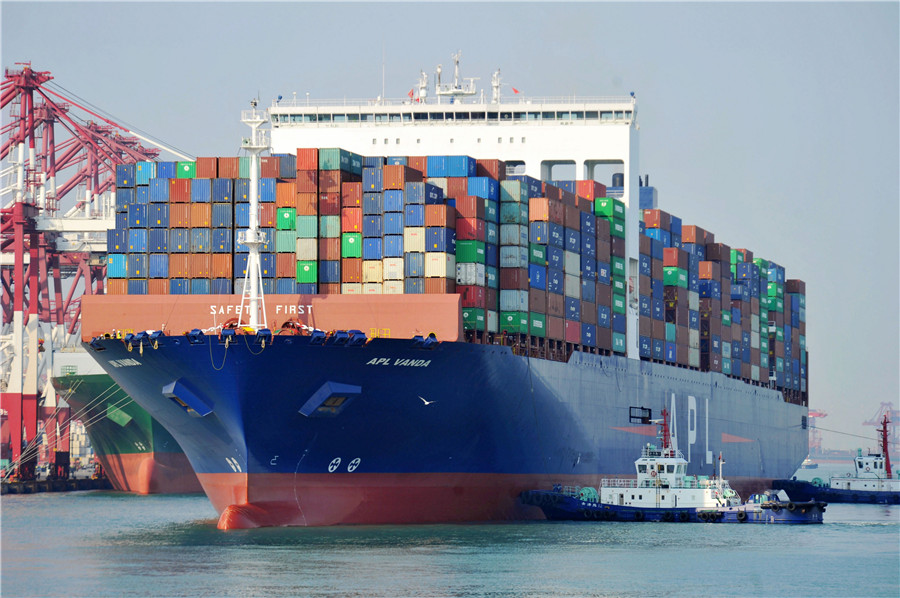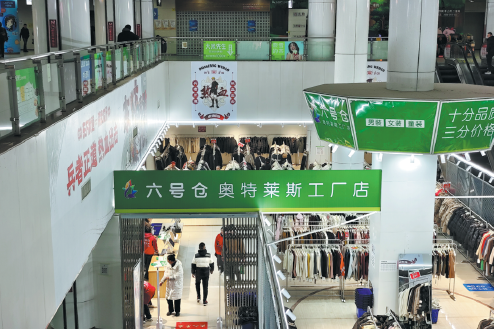Tariff moves on US goods reciprocal, analysts say


China said on Thursday that tariffs on imports of certain US products will be halved, starting Feb 14 — a move made amid the novel coronavirus outbreak and following the United States' recent decisions on tariff reductions.
Analysts said the tariff reductions enacted by the world's two largest economies are reciprocal and contribute to the continuity of their sound trade and economic relations after the signing of their phase-one trade and economic deal in mid-January.
US products subject to the tariff reduction are among the $75 billion worth of products that China imposed tariffs on in late August. Those tariffs took effect on Sept 1.
The Customs Tariff Commission of the State Council said on Thursday that for some US goods with 10 percent tariffs that had been in place since Sept 1, the rate was decreased to 5 percent, and for those with 5 percent tariffs, the rate was adjusted to 2.5 percent.
The tariff reduction corresponds with the decision announced by the US to cut tariffs on $120 billion worth of Chinese goods in half, beginning Feb 14.
The commission said subsequent adjustments depend on changes in the Sino-US economic and trade situation, and China hopes to work with the US to eliminate all extra tariffs.
Lu Ting, Nomura Securities' chief economist in China, said that it is "a reciprocal and reasonable move from China in response to the US reduction".
Lu estimated that $24 billion worth of US products will face a lower additional tariff of 2.5 percent from 5 percent, while about $5 billion worth of US products will face a lower additional tariff of 5 percent, down from 10 percent.
The move, together with the novel coronavirus outbreak in China, may contribute to the current "honeymoon period" between the two countries as they need to join hands to fight the virus, Lu said.
In fact, on Tuesday, according to Larry Kudlow, White House economic adviser, China's import target promised in the phase-one trade deal will take longer to reach as China will first have to recover from the economic fallout from the novel coronavirus outbreak.
Wei Jianguo, a former vice-minister of commerce, said due to the epidemic, China is likely to ask the US to accept delays in promised purchases of US goods under the phase-one deal. "Delay" does not mean "cancellation", while the country will try to meet its commitments in spite of the difficulties, he said.
Xu Qiyuan, a researcher at the Chinese Academy of Social Sciences, told China Daily that the tariff rate cuts this time will influence imports of agricultural, energy, chemical and plastic products from the US.
"The adjustments, which are reciprocal, reflected China's sincerity and wish to jointly promote the final elimination of all tariffs imposed by both sides," said Xu.
Due to the outbreak, the two sides could implement the trade agreement on medical supplies and other related imports as a priority, to promote technical cooperation and personnel exchanges. Sino-US bilateral cooperation can be improved during the process of jointly fighting the disease, Xu said.
On Wednesday, the US released the third group of US-approved product exclusions targeting Chinese imports, covering 117 items. Those products have been subject to tariffs since Sept 24, 2018, when the US announced additional levies on approximately $200 billion worth of Chinese goods.
Contact the writers at [email protected]
-->



































